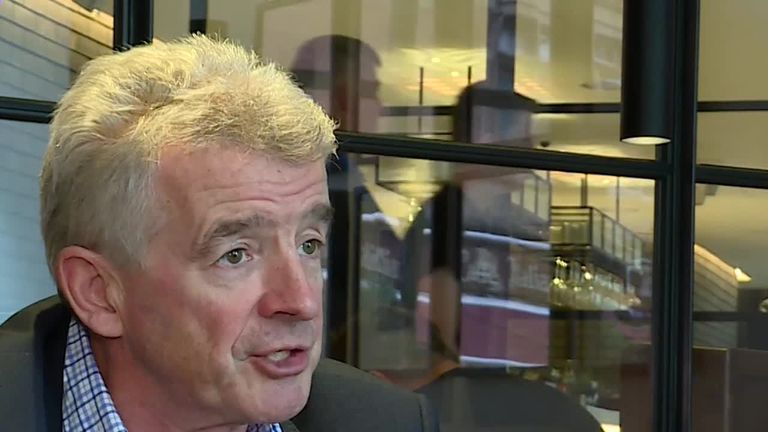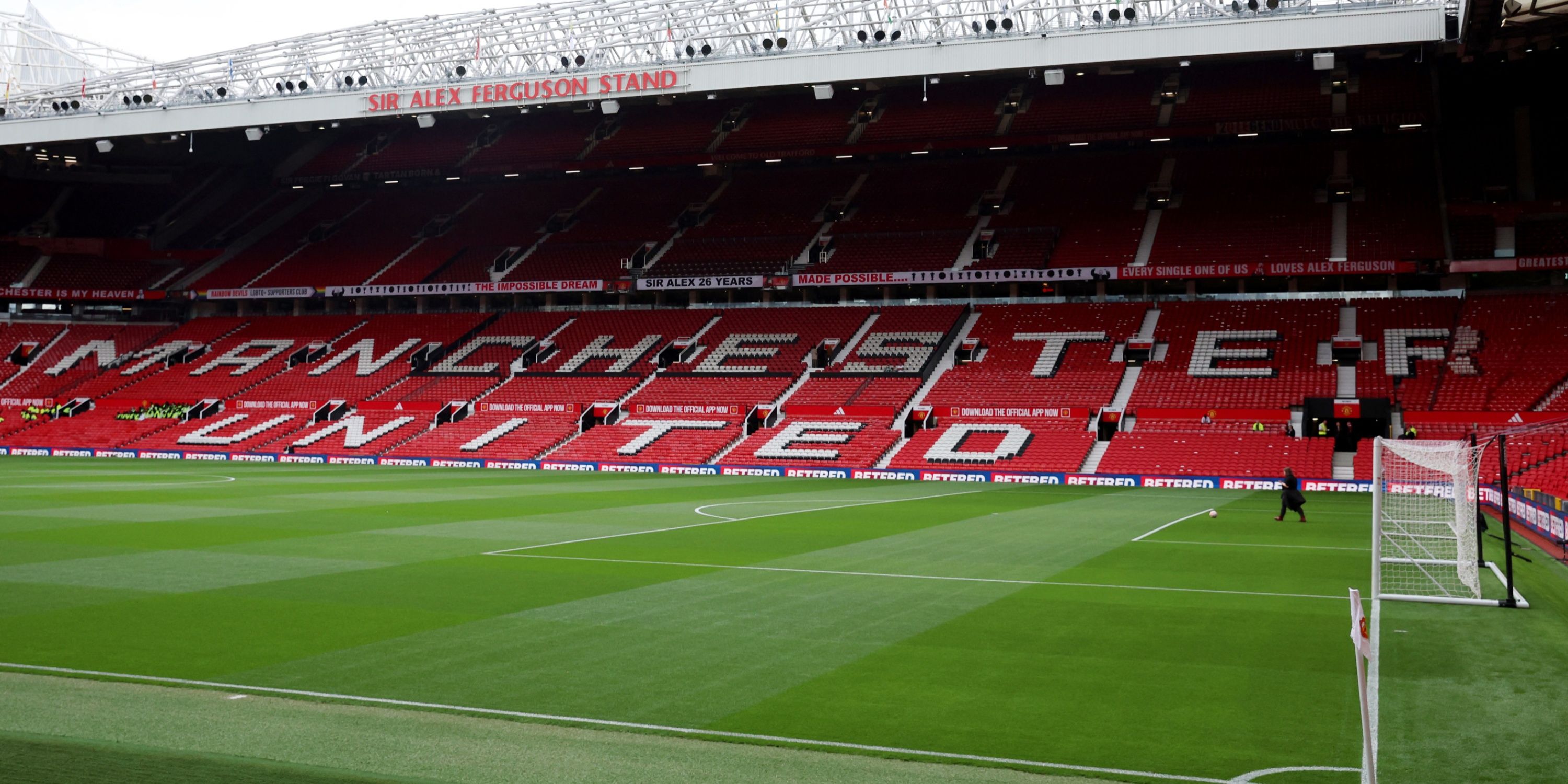Ryanair's Growth Threatened By Tariff Wars; Company Initiates Buyback Program

Table of Contents
The Impact of Tariff Wars on Ryanair's Operations
Tariff wars are creating significant headwinds for Ryanair, impacting both operational costs and passenger demand. The airline, like many others, is feeling the pinch from increased prices and uncertainty in the global market.
Increased Operational Costs
Tariff wars directly inflate Ryanair's operational costs through several channels:
- Increased import duties on aircraft components: Many parts for Ryanair's fleet are sourced internationally. Increased tariffs on these imports translate directly to higher maintenance and repair costs, squeezing profit margins. This necessitates a careful evaluation of sourcing strategies and potential cost-cutting measures.
- Higher fuel surcharges due to trade disputes: Global trade tensions often impact fuel prices, a major expense for any airline. Increased tariffs on imported oil or refined products contribute to higher fuel surcharges, impacting Ryanair's bottom line and potentially leading to increased ticket prices. Effective fuel hedging strategies are becoming increasingly crucial to mitigate these risks.
- Potential supply chain disruptions impacting flight schedules: Trade disputes can disrupt global supply chains, potentially delaying the delivery of crucial parts and impacting Ryanair's ability to maintain its flight schedule. This can lead to operational inefficiencies and potentially damage its reputation for punctuality and reliability.
Reduced Passenger Demand
The economic uncertainty stemming from tariff wars extends beyond operational costs. It also significantly impacts passenger demand:
- Impact on discretionary spending among travellers: Economic downturns, often linked to tariff wars, reduce consumer confidence and disposable income. This directly impacts discretionary spending, including travel, leading to a potential decrease in Ryanair's bookings.
- Shift in travel patterns due to economic downturn: During periods of economic uncertainty, travelers may opt for shorter trips or cheaper alternatives, affecting Ryanair's revenue streams and potentially impacting flight frequencies on certain routes. A deeper understanding of consumer behavior in these economic conditions is vital for strategy adjustments.
- Increased competition from other airlines leveraging cost advantages: Airlines with different sourcing strategies or a stronger presence in less-affected markets may gain a competitive edge, potentially drawing passengers away from Ryanair.
Ryanair's Share Buyback Program: A Strategic Response?
Ryanair's recent announcement of a share buyback program is a notable response to the challenges it faces. However, its long-term implications remain a subject of analysis.
Rationale Behind the Buyback
The buyback program indicates Ryanair's belief that its shares are currently undervalued. This strategic move serves several purposes:
- Strengthening investor confidence: The buyback demonstrates confidence in the company's future prospects, potentially reassuring investors and boosting share prices.
- Improving the company’s earnings per share (EPS): By reducing the number of outstanding shares, the buyback can artificially inflate earnings per share, making the company appear more profitable to investors.
- Utilizing excess cash flow effectively: If Ryanair has substantial cash reserves, the buyback offers a way to return capital to shareholders instead of letting it sit idle.
Potential Long-Term Implications
While the buyback offers short-term benefits, its long-term impact is less certain:
- Potential limitations on future investment opportunities: The capital used for the buyback could have been invested in fleet modernization, route expansion, or other growth initiatives.
- Impact on the company’s financial flexibility: A significant buyback reduces Ryanair's financial flexibility to react to unexpected challenges or seize emerging opportunities.
- Analysis of the buyback’s effect on Ryanair’s stock price: The success of the buyback hinges on whether it effectively boosts the share price and enhances investor confidence in the long term.
Alternative Strategies for Navigating the Challenges
While the buyback program addresses immediate concerns, Ryanair needs a broader strategy to withstand ongoing challenges.
Fuel Hedging and Cost Optimization
Mitigating the impact of fluctuating fuel prices and operational costs is paramount:
- Exploring alternative fuel sources: Investing in research and development of sustainable aviation fuels could reduce long-term fuel costs and enhance the company's environmental profile.
- Streamlining operational processes for cost reduction: Identifying areas for efficiency improvements, such as optimizing flight routes or reducing ground handling times, can contribute to significant cost savings.
- Negotiating better deals with suppliers: Strengthening relationships with suppliers and negotiating more favorable contracts for aircraft parts and other essentials can mitigate the impact of rising prices.
Diversification and New Market Penetration
Reducing reliance on specific markets and revenue streams is crucial:
- Exploring new routes in emerging markets: Expanding into regions less affected by current global trade tensions can diversify Ryanair's revenue base and reduce vulnerability to shocks in specific markets.
- Developing ancillary revenue streams (e.g., baggage fees, onboard sales): Increasing revenue from non-ticket sources can buffer against fluctuations in passenger demand and enhance profitability.
- Strategic alliances and partnerships: Collaborating with other airlines or travel companies can open up new markets and access resources, expanding Ryanair's reach and strengthening its resilience.
Conclusion
Ryanair's growth is undeniably facing significant headwinds due to international tariff wars and related economic uncertainties. While the share buyback program offers a short-term response, a comprehensive long-term strategy encompassing cost optimization, revenue diversification, and market expansion is crucial for its continued success. The future of Ryanair’s success will hinge on its adaptability and ability to proactively manage the risks posed by ongoing global economic instability and trade disputes. Understanding the complex interplay of tariff wars, the buyback program, and alternative strategies is key to assessing the long-term viability of this major low-cost carrier. Stay informed on the latest developments regarding Ryanair and its response to these evolving economic conditions.

Featured Posts
-
 Breite Efimereyonta Giatro Stin Patra 12 And 13 Aprilioy
May 20, 2025
Breite Efimereyonta Giatro Stin Patra 12 And 13 Aprilioy
May 20, 2025 -
 Transfer News Man Utd Approaches Arsenal And Chelsea Target For 62 5m
May 20, 2025
Transfer News Man Utd Approaches Arsenal And Chelsea Target For 62 5m
May 20, 2025 -
 Usmc Tomahawk Drone Truck Army Eyes Cruise Missile Launch System
May 20, 2025
Usmc Tomahawk Drone Truck Army Eyes Cruise Missile Launch System
May 20, 2025 -
 I Epistrofi Toy Giakoymaki Sto Mls Pithanotites Kai Senaria
May 20, 2025
I Epistrofi Toy Giakoymaki Sto Mls Pithanotites Kai Senaria
May 20, 2025 -
 Je Li Jennifer Lawrence Rodila Drugo Dijete
May 20, 2025
Je Li Jennifer Lawrence Rodila Drugo Dijete
May 20, 2025
